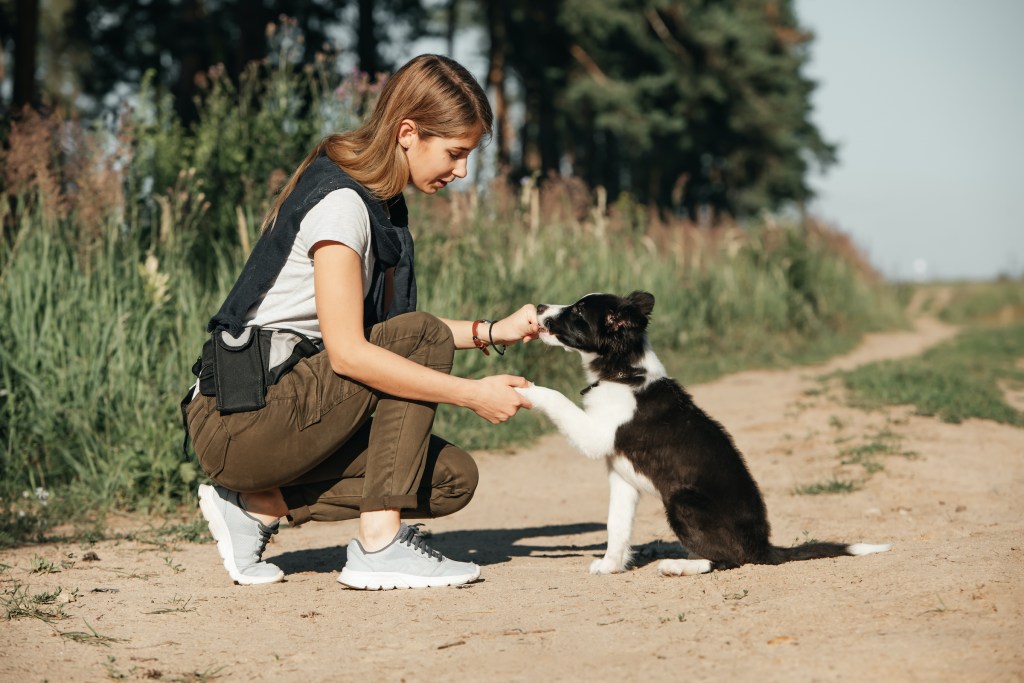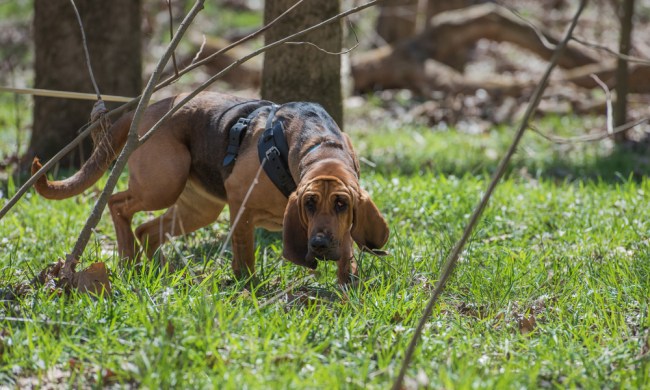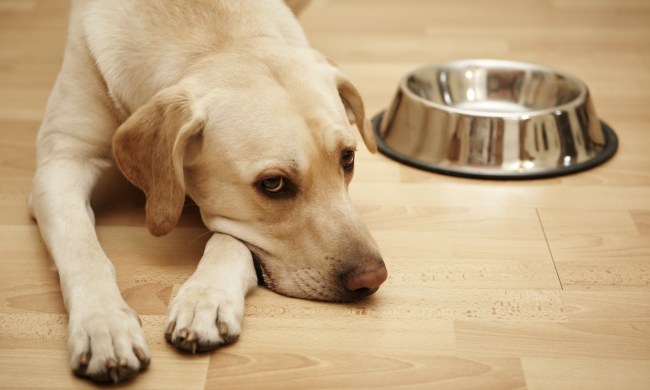We’ll never stop feeling amazed by how much dogs tune into humans. Because our species have evolved together over the course of thousands of years, we have a unique understanding of our pups and they get us, too. Science has often speculated that our stress might directly impact canines, and now we have receipts. So, can dogs smell stress? A group of researchers in the U.K. set out to get to the bottom of this question.
Can dogs smell stress?

A recent study confirms that dogs respond to human stress, and it can even change their behavior. The researchers recruited 18 dogs (a relatively small sample size) for the experiment and also human subjects. The people were unknown to the dogs and did not interact with them directly. Instead, they used sweat-soaked rags to give the esteemed pup scientists a whiff of stress or unstressed human. When they smelled stress, the dogs were more cautious and pessimistic overall (you can check out the exact details of the experiment in this article).
Dr. Zoe Parr-Cortes, lead author and a veterinarian, explained, “‘It basically shows that the stress smell might affect how [dogs] respond to ambiguous situations … They might be less likely to try something risky if they think they’re going to be disappointed.'” To be honest, we aren’t terribly surprised by the findings since we’ve always suspected that our beasties know when we’re upset.
How does human stress impact dogs in everyday life?

Researchers indicated these behaviors might continue outside of the lab and affect daily life, including how we train dogs. “When your owner is training you, they’re probably not giving you maybe as many treats if they’re really stressed,” remarked a Ph.D. student who studies comparative cognition. That’s important because we might inadvertently confuse or even weaken our own training regimen by approaching the task from a place of anxiety.
If dogs pick up that we’re stressed about training them, they could get nervous as well. Bringing both positive reinforcement techniques and a good attitude to training sessions becomes even more important with this data. Our four-leggers will still know and respond accordingly even when we don’t look anxious to another human.
Luckily, there’s a simple cure here: Petting a dog has shown to decrease human stress. That means you can always give Fido a scratch to bring down your cortisol level — and theirs. So, while our negative emotions can influence our pooches, we may also boost each other up (interestingly, in this study, the relaxed-smelling rags had no impact). Set aside some cuddle time with your fur baby to counteract your training tension, and work closely with a trainer as needed. Dogs respond to consistency and rewards, two things that should keep them happy and your coaching stress free.




